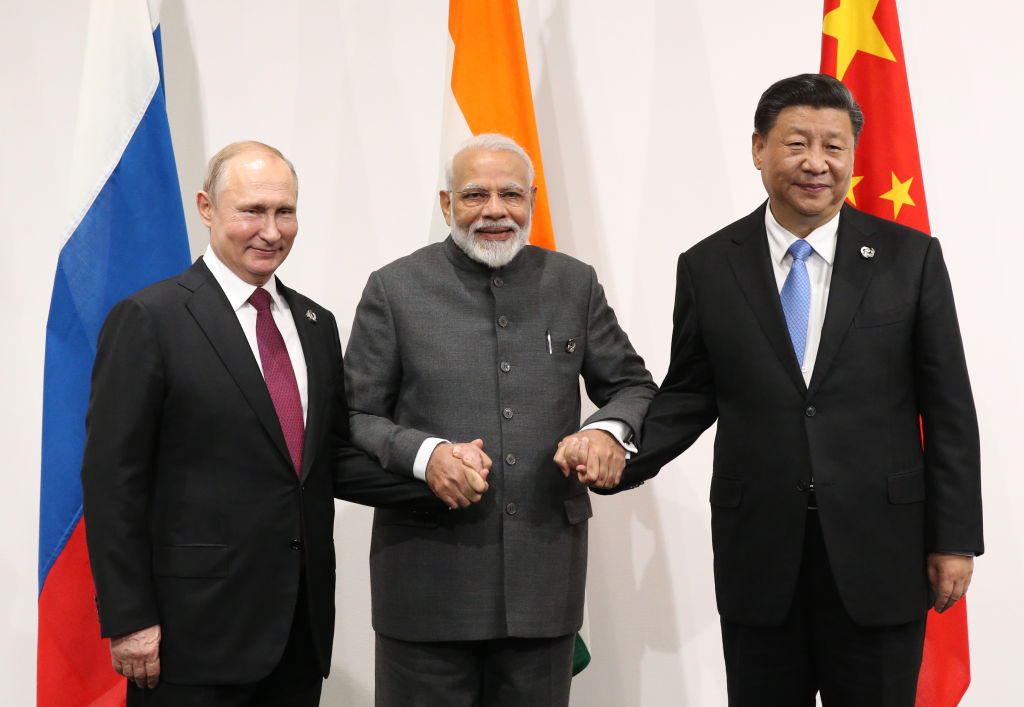With the prospect of all-out war taking shape in the Middle East, many have asked whether this is the final nail in the coffin for the West.
Even if the West isn’t doomed, there is the apparent potential of a new world order — in which there are too many conflicts for America to exert global dominance. Will this finally come to pass in 2024?
So-called multipolarity is the big idea in international relations right now. It chimes with the anti-Americanism of the Left and also with various tendencies on the Right. Out on the fringes there are Putin-sympathisers, fascists and antisemites, but away from the extremes there are nobler motivations — a hatred of war, for instance, or the desire to see Europe take charge of its own defence.
Some analysts simply regard multipolarity as the natural state of affairs. Especially prominent is John Mearsheimer who believes that the most powerful nations are bound to exert control over their neighbours — and that the West shouldn’t interfere.
Arguably, a reordered world is inevitable and even beneficial. Rising prosperity means that once-poor countries, as well as not starving, can afford larger militaries. As a result, power — whether hard or soft — will be more widely distributed than it used to be.
One common assumption about multipolarity is that alliances build in opposition to the hegemon. Yet in a multipolar world, this is not entirely true. The events of the weekend are a case in point. It wasn’t only the US and UK that helped Israel neutralise the Iranian drones — but also non-Western powers such as Saudi Arabia and Jordan.
One of the problems with Mearsheimer and his fellow travellers is that even if you think it’s okay to let regional bullies do their thing, it’s not always clear who the biggest kid on the block actually is. In the Middle East it could be Saudi Arabia, Iran or Turkey — meaning that unresolved rivalries will trump anti-Western animosities.
As for regions where the biggest kid is obvious — such as East Asia — it doesn’t mean that smaller countries are helpless. They have agency and may ally with the West to stay free. For instance, Japan is in talks to participate in pillar two of Aukus, the defensive alliance formed by Australia, the UK and US. In another development, the first trilateral summit between the US, Japan and the Philippines took place last week — much to China’s annoyance.
Meanwhile, in the Western Hemisphere, Venezuela’s aggression towards neighbouring Guyana isn’t only attracting America’s attention, but also Brazil’s. The biggest country in South America will have to decide whether to intervene or stand by.
Multipolarity is supposed to be about an increasingly complex system of international relations. Ironically, though, it’s become tangled up with a simplistic idea: the West versus the Rest. That might suit narratives of Western decline and villainy but, as events keep showing us, the real world is very different.











Join the discussion
Join like minded readers that support our journalism by becoming a paid subscriber
To join the discussion in the comments, become a paid subscriber.
Join like minded readers that support our journalism, read unlimited articles and enjoy other subscriber-only benefits.
Subscribe